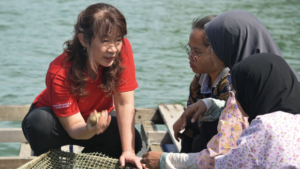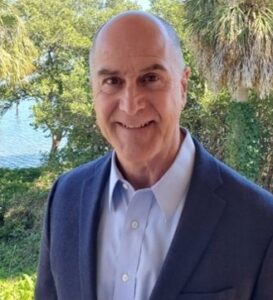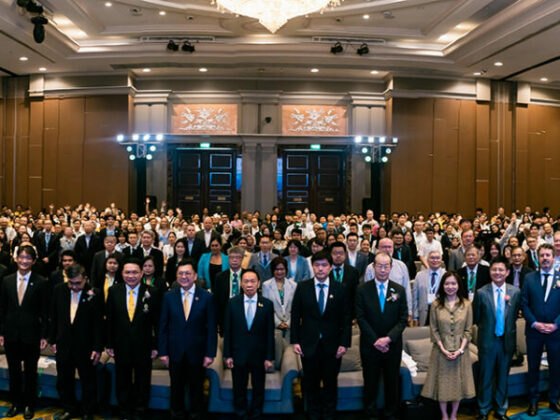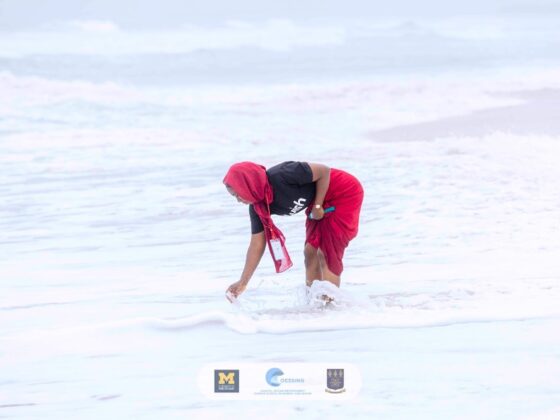Encompassing 71% of the Earth’s surface and with an average depth of 4,000 meters, the world’s ocean poses significant challenges when it comes to comprehending the dynamic changes in marine life. Through its Challenge 2: “Protect and restore ecosystems and biodiversity”, the United Nations Decade of Ocean Science for Sustainable Development 2021-2030 (‘Ocean Decade’) aims to enhance understanding of the effects of multiple stressors on ocean ecosystems and develop solutions for effective conservation and restoration.
Marine ecosystems and biodiversity provide essential benefits, including crucial resources such as food, water and medicine, as well as climate regulation and coastal protection. Acquiring up-to-date information and insights into the transformation of marine resources, their distribution and connectivity, ranging from the ocean’s surface to its deepest depths, is therefore key to sustainably manage, protect and restore marine and coastal ecosystems.
To this end, Ocean Decade Challenge 2 seeks to develop tools to implement management frameworks that build resilience, recognize thresholds and avoid ecological tipping points. The goal is to ensure everyone has the opportunity for a better life, to secure better employment and to participate in a thriving economy.
Established as part of the Vision 2030 process, Working Group 2 amplifies the efforts to tackle Challenge 2. It is led by two expert co-chairs, Frank Muller-Karger, Professor in the College of Marine Science, University of South Florida, USA, and Aileen Tan Shau Hwai, Professor at the School of Biological Sciences, Universiti Sains Malaysia (USM).
Over 20 experts, specializing in multidisciplinary ocean observing, education, the private sector and international programme coordination, identified gaps and priority needs in order to define key indicators for achieving Challenge 2 by 2030 – a strategic ambition that integrates conservation, restoration and judicious resource utilization in the long term.

Aileen Tan Shau Hwai, Professor at the School of Biological Sciences, University Sains Malaysia (USM)
In this context, Aileen Tan Shau Hwai highlighted the cross-cutting priority of enhancing protection and restoration of ecosystems in a dynamic environment throughout the Ocean Decade.
“Ocean Decade Challenge 2 is interconnected with all of the Ocean Decade Challenges, emphasizing collaboration and partnerships between scientists and users,”she said. “The ultimate goal is to improve the understanding of marine life and ecosystems to benefit future generations through sustainable development and conservation. Most importantly is translating the science to actionable solutions.”
The achievement of this ambitious goal hinges on local engagement and self-management within the framework of international and interdisciplinary cooperation, while leveraging advanced technologies and scientific knowledge. Recognizing the critical role of effective data and knowledge mobilization, Working Group 2 advocates for improvements in biodiversity databases and the adoption of standardized data formatting and sharing practices.
The outcome of this months-long collaborative work, a conceptual framework for sustainable development, is presented in a draft white paper that is currently open for public review. It delineates potential milestones for monitoring progress in meeting Challenge 2, identifying gaps in scientific knowledge, promoting inclusive networks and integrating science and management to inform public policies.

Frank Muller-Karger, Professor in the College of Marine Science, University of South Florida, USA
This transformative pathway involves nations worldwide, commitment to the principles of the 2030 Agenda for Sustainable Development and prioritizing global coordination of local capacity development. Multilevel stakeholder engagement in the implementation of best practices in information technologies and ecosystem-based management, coupled with fundraising efforts to co-design science-based ocean solutions at the local level, will mark a success in tackling this challenge.
“I have hope that people will recognize that we can work together to provide more jobs and raise the standard of living everywhere by integrating conservation and development ideas,” concluded Frank Muller-Karger. “Can we visualize ourselves as healthy societies in a future that lies well beyond 2030? I think so, but this also requires seeing ourselves as part of an interdependent web of marine life. If we can forecast marine life the way we now can forecast weather, we all gain!”
Get involved in the Ocean Decade transformative journey to 2030!
Your voice matters: take part in the review process of the draft white papers produced by the Vision 2030 Working Groups by 22 February.
Working Group 2 seeks the inputs, ideas, and diverse perspectives from a broad spectrum of stakeholders and rights holders, encompassing Early Career Ocean Professional (ECOPs), local communities, the general public, industry, ocean observation experts, information technologists, engineers and social scientists.
The draft white papers will be presented and discussed during thematic ‘Science Solution Forums’ at the 2024 Ocean Decade Conference in Barcelona, a pivotal event for the Vision 2030 process. The outcomes of discussions will feed into the final version of the documents.
Click here to meet Working Group 2 and find out more about the Vision 2030 process.
For more information, please contact:
Vision 2030 Team (vision2030@unesco.org)
***
About the Ocean Decade:
Proclaimed in 2017 by the United Nations General Assembly, the UN Decade of Ocean Science for Sustainable Development (2021-2030) (‘the Ocean Decade’) seeks to stimulate ocean science and knowledge generation to reverse the decline of the state of the ocean system and catalyse new opportunities for sustainable development of this massive marine ecosystem. The vision of the Ocean Decade is ‘the science we need for the ocean we want’. The Ocean Decade provides a convening framework for scientists and stakeholders from diverse sectors to develop the scientific knowledge and the partnerships needed to accelerate and harness advances in ocean science to achieve a better understanding of the ocean system, and deliver science-based solutions to achieve the 2030 Agenda. The UN General Assembly mandated UNESCO’s Intergovernmental Oceanographic Commission (IOC) to coordinate the preparations and implementation of the Decade.
About the IOC/UNESCO:
The Intergovernmental Oceanographic Commission of UNESCO (IOC/UNESCO) promotes international cooperation in marine sciences to improve management of the ocean, coasts and marine resources. The IOC enables its 150 Member States to work together by coordinating programmes in capacity development, ocean observations and services, ocean science and tsunami warning. The work of the IOC contributes to the mission of UNESCO to promote the advancement of science and its applications to develop knowledge and capacity, key to economic and social progress, the basis of peace and sustainable development.


